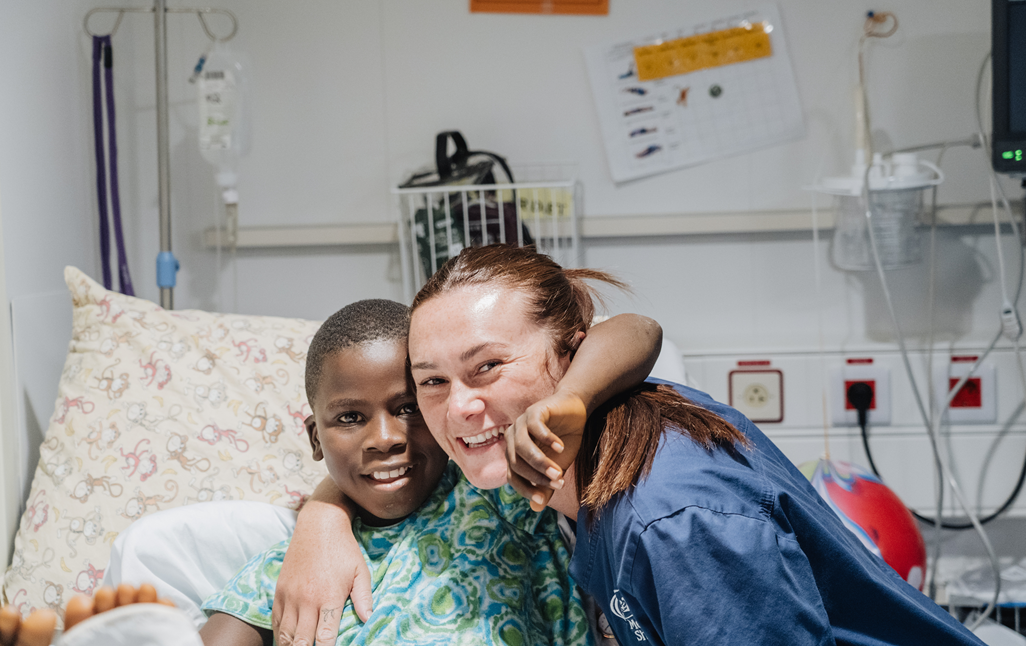Fatou*, a young girl from Senegal in West Africa, had suffered severe burns from an open fire, resulting in injuries to her armpits and hands. These caused her immense pain and severely restricted her mobility.
On her arrival last year onboard the hospital ship the Global Mercy, docked at the Senegal port capital Dakar, she was understandably fearful and withdrawn.
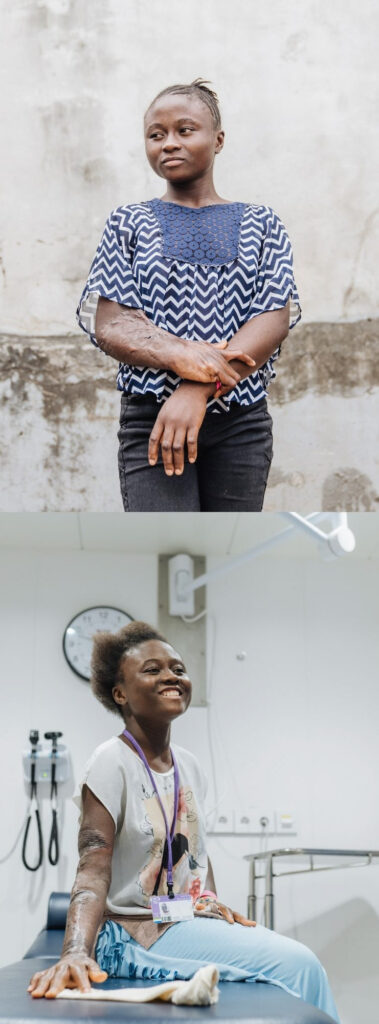
Access to health care in Senegal is extremely limited, so for many from rural communities, the sight of medical personnel, unfamiliar surroundings, and the prospect of surgery can be overwhelming.
Over three months last year, Michelle Knubley, a volunteer nurse from Gisborne, worked tirelessly to care for Fatou. Multiple surgeries were performed to release the contractures caused by her burns, followed by intensive post-operative care.
The transformation was nothing short of miraculous. By the end of her stay, Fatou was running down the ship’s corridors, full of energy and joy. She was no longer in pain, and her mobility was restored, allowing her to return to school and reclaim her childhood.
Knubley’s dedication to Fatou’s care extended beyond the physical. She spent countless hours providing emotional support, understanding the trauma Fatou had experienced, and helping her regain trust in people and the world around her.
This holistic approach to care is a hallmark of the work done by Mercy Ships, an international charity which runs two hospital ships serving developing African nations. They are staffed by volunteers from more than 60 countries.
Knubley is one of 32 Kiwi nurses volunteering this year aboard the two ships, Global Mercy and Africa Mercy. Each ship each year takes a mission serving an African nation, providing a wide range of surgery and post-surgical care to people with desperate health needs.
Challenges of getting health care
In many African countries, access to safe and timely surgical care is almost non-existent. According to the Lancet Commission on Global Surgery,1 more people die each year from a lack of safe surgical care than from HIV/AIDS, malaria, and tuberculosis combined.
This statistic underscores the critical need for the services provided by Mercy Ships.
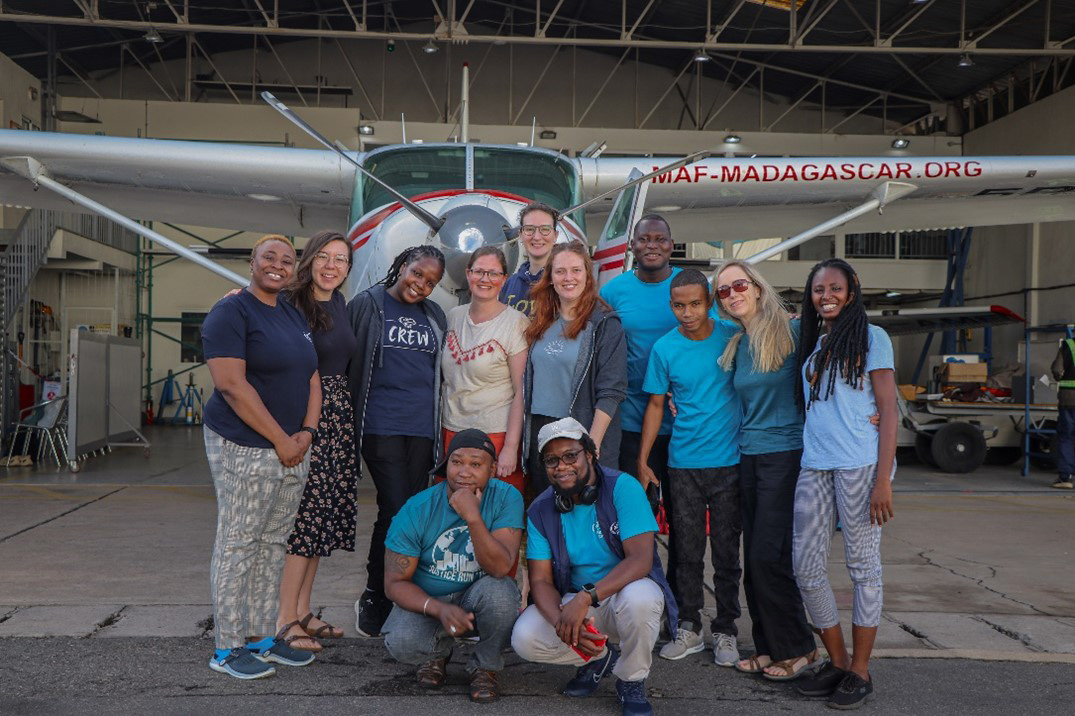
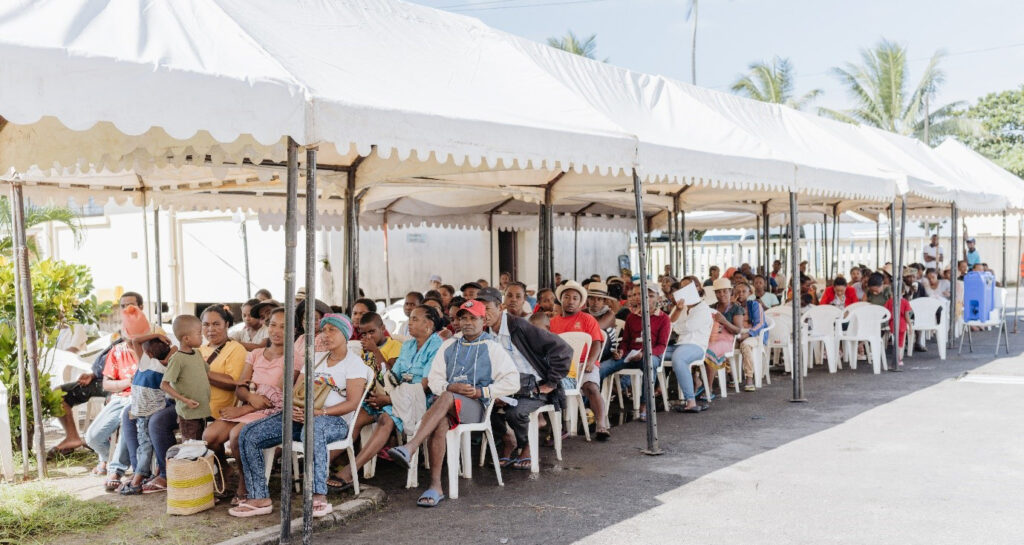
Mercy Ships encounters numerous patients who have travelled long distances, often from rural and isolated villages, in the hope of receiving life-saving surgery. Many of these patients have never seen a doctor before, let alone undergone surgery.
Their journeys are fraught with uncertainty and fear, as cultural beliefs and past experiences with illness and death contribute to a deep-seated apprehension about medical intervention.
In addition to the logistical challenges of accessing health care, there are also severe financial barriers. Many families cannot afford the cost of transportation, let alone the medical expenses associated with surgery.
Mercy Ships provides all services free of charge, alleviating this burden and making it possible for the poorest individuals to receive the care they desperately need.
Emphasising cultural sensitivity
Working in diverse cultures requires understanding and respect for local customs and beliefs. Mercy Ships places a strong emphasis on cultural awareness in its approach to patient care.
Translators are vital team members, ensuring patients understand every stage of their treatment. This culturally sensitive approach builds trust and fosters positive relationships between the health professionals and patients.
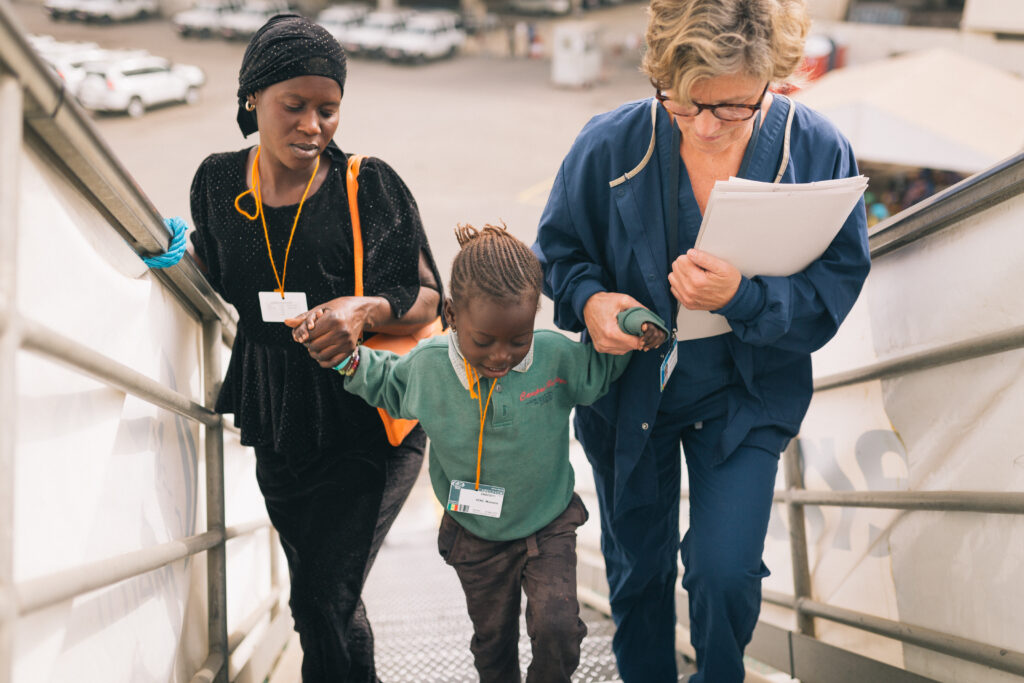
Many patients come from communities where medical conditions like large tumours, burn contractures, and obstetric fistulas are stigmatised. These conditions often lead to social ostracism, adding to the patients’ emotional and psychological burden.
By addressing these issues with empathy and understanding, Mercy Ships helps patients reintegrate into their families and communities, restoring their dignity and quality of life.
Mercy Ships helps patients reintegrate into their families and communities, restoring their dignity and quality of life.
Teniah Howell, a nurse from Blenheim who served as the outpatient team leader aboard the African Mercy, stationed this year at Madagascar, is one of a number of Kiwi nurses who have taken leadership roles for Mercy Ships recently.
“In the outpatient department we see many of the patients three times per week or more, and sometimes this is over the course of several months,” Howell said.
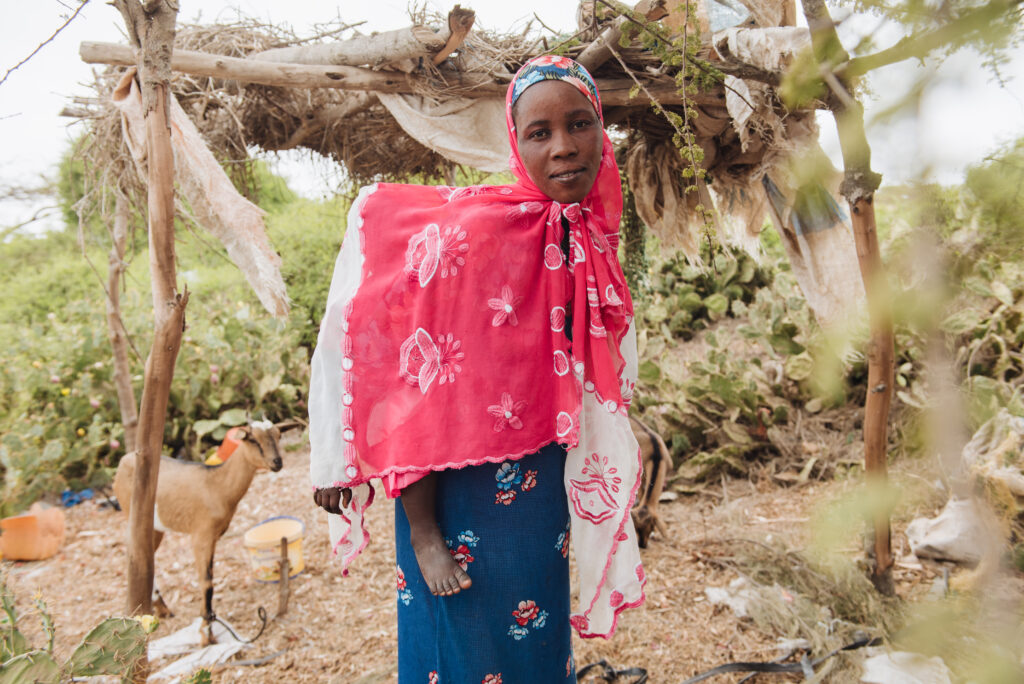
“We work hard to schedule patients to ensure that the same nurse can look after the patient each time to keep that continuity and building of trust and we build relationships with their caregivers in support of the patient.
“There is not the same time pressure that you would ordinarily experience as we can schedule patients according to the acuity of their wounds,” Howell says.
She says Mercy Ships is about catering to the need of each individual. “If it means four hours of care for one individual, then that is what that individual will receive.”
Other New Zealand nurses who have taken leadership roles on the two ships over the past year are Kylie Huber, an Auckland nurse who was operating room clinical supervisor; Maria Kuo, from Gisborne, ward clinical supervisor; Charlotte Gordon, from Hamilton, preoperative manager; and Canterbury nurse Felicity Markholm, operating room nurse and paediatric team leader.
Kiwi nurses report finding their practice back here in New Zealand invigorated by their Mercy Ships experience. Exposure to different practice, giving opportunities to learn, and lower nurse-patient ratios aboard the hospital ships, allowing them to give comprehensive and holistic care, are just two of the positive features of the volunteer missions.
A mini village on a ship
Mercy Ships has an average of 1200 volunteer crew from more than 60 nations serving onboard its two ships each year.
Over 40 years, the charity has provided more than 111,850 life-changing or life-saving surgical procedures such as cleft-lip and palate repair, cataract removal, orthopaedic surgery, facial reconstruction, burn contracture release, paediatric surgery, general surgery, and obstetric fistula repair.
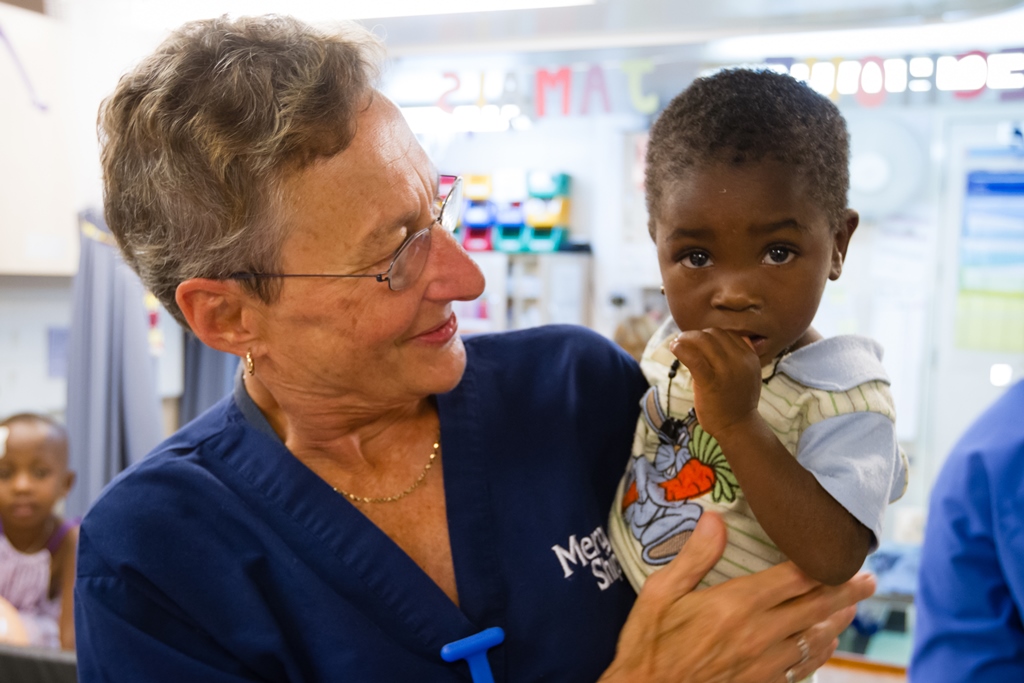
The hospital ships are like floating villages, complete with not only surgical theatres and recovery rooms but also classrooms, dining halls and living quarters. Each ship is thus a self-sufficient operation, where volunteers and patients live and interact closely, fostering a strong sense of community and mutual support.
State-of-the-art facilities
Mercy Ships volunteers bring excellent standards of surgery in state-of-the-art theatres within reach of some of the world’s poorest people. Operating theatres are similar to those in land-based hospitals, making it easy for theatre nurses to transition.
Huber said that though there were cultural differences, the fundamentals of operating theatre nursing on the ships were the same.
The main difference onboard is exposure to unusual and extreme surgical cases not seen in wealthier countries. Patients in low-income countries often lack access to early intervention and preventative care. This means that by the time they receive treatment, their conditions are often more advanced and complex, requiring specialised surgical expertise and innovative care.
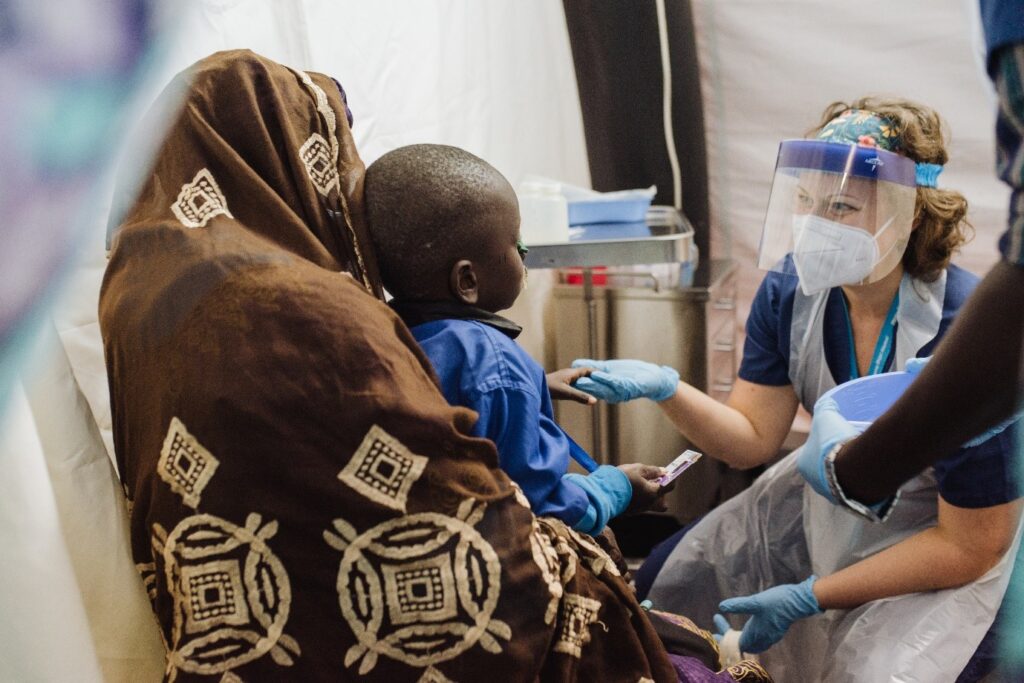
Another unique challenge faced by Mercy Ships is the lack of local capacity for post-operative follow-up. To address this, Mercy Ships ensures patients are capable of functioning independently before discharge.
Physiotherapy is an essential component of the rehabilitation process, often requiring several months for patients to regain full function. The hospital out-patient extension (HOPE) centre provides a dedicated space for outpatients, ensuring they have access to appointments and proper nutrition to aid healing.
The HOPE centre also serves as a place where patients can stay while they complete their rehabilitation, offering a supportive environment where they can receive ongoing medical care and physical therapy.
Building local capacity
Direct patient care is a significant part of Mercy Ships’ mission, but there is also a focus on building local health-care capacity. This involves training local health-care professionals, developing health-care infrastructure, and working with local health ministries to improve overall health service delivery.
By investing in local health-care systems, Mercy Ships aims to create a sustainable impact that lasts long after their ships have sailed.
Local doctors, nurses, and other healthcare workers attend courses and workshops, learning new techniques and best practices to apply in their communities. The Mercy Ships training programmes cover a wide range of topics, from surgical techniques and patient care to hospital administration and biomedical engineering.
The impact of the new Global Mercy
In 2023, Mercy Ships launched the Global Mercy, a new hospital ship that significantly expands the organisation’s capacity. The Global Mercy is equipped with six operating theatres, six wards with 199 patient beds, and an intensive care unit.
It also includes facilities for radiology, medical laboratory services, pharmacy, physiotherapy, hand and speech therapy, and nutrition.
The first patient surgery was conducted in Sierra Leone last year and Mercy Ships will be returning for a second field service there which will finish in June 2025.
The second ship complements the African Mercy which boasts five operating theatres, a four-bed recovery area, intensive care for up to five individuals and 75 ward beds. Currently it is serving in Madagascar.
Accelerated nursing opportunities
The dynamic hospital environment on Mercy Ships promotes professional development for nurses. Upon arrival, volunteers undergo a full day of orientation, familiarising themselves with the ship and specific areas of work.
The supportive environment allows nurses to thrive and expand their practice. Howell who oversees outpatients, found diverse roles to perform onboard, such as supporting preoperative nurses and the eye team.
“There are always opportunities to float and cover in other areas if you wish to experience that,” she said. “Equally, there is plenty of opportunity to help cover as the duty nurse in the after-hours on-call roster or as an EMT [emergency medical technician] nurse to assist with crew emergencies.”
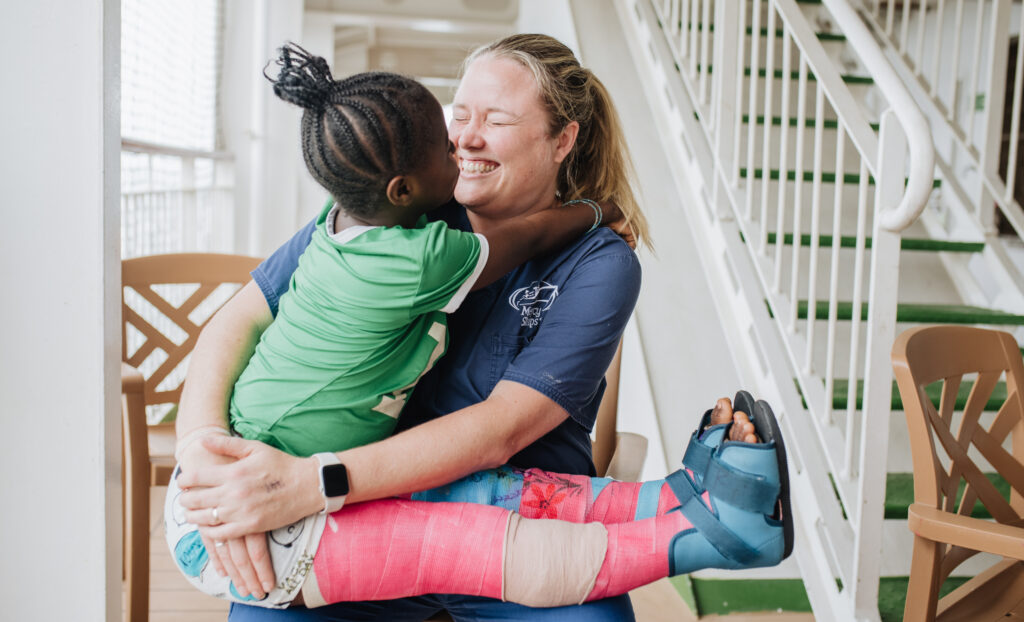
- Mercy Ships New Zealand will be running a stand at NZNO’s annual conference in Wellington, on September 18-19; and at the conference of the perioperative nurses college of Tōpūtanga Tapuhi Kaitiaki o Aotearoa, NZNO, in Wellington on October 17-19.
- You can also find out more about volunteering for Mercy Ships here.
Also, due to the unique environment, nurses are regularly exposed to different practices, which promotes learning. “Working in an international team means things are done differently,” said Felicity Markholm. “Asking questions and understanding the rationale behind different practices has improved my own practice and empathy towards patients.”
Mercy Ships provides nurses with the opportunity to develop leadership skills, as they often take on responsibilities beyond their typical roles. This includes mentoring new volunteers, coordinating care for patients, and contributing to the overall operations of the ship.
Reigniting love for nursing
The lower nurse-patient ratios are required due to the unique operating environment in Africa; however, it has a profound impact for many New Zealand nurses as their passion for nursing was reignited.
New Zealand volunteer nurse Ellen Parker found the experience “enlightening and rewarding. It was a place where I felt at home. The people you work with are so grateful for the smallest things, making nursing come alive.”
Auckland nurse Georgia Logan has a similar reaction: “Returning to the boat refreshes us to be nurses again. I’m going back into New Zealand nursing with renewed empathy and care.”
* The patient’s name has been changed to protect her privacy.
Fiona Hunt-Baker is a lead recruiter for Mercy Ships New Zealand.
References
- Meara, J. G., Leather, A. J., Haganda, L., Alkire, B. C., Alonso, N., Ameh, E. A., Bickler, S. W., Conteh, L., Dare, A. J., Davies, J., Dérivois Mérisier, E., El-Halabi, S., Farmer, P. E., Gawande, A., Gilllies, R., Greenberg, S. L. M., Grimes, C. E., Gruen, R. L., Ismail, E. A., . . . Yip, W. (2015). Global Surgery 2030: Evidence and solutions for achieving health, welfare, and economic development. The Lancet Commissions, 386(9993), 569-624.



